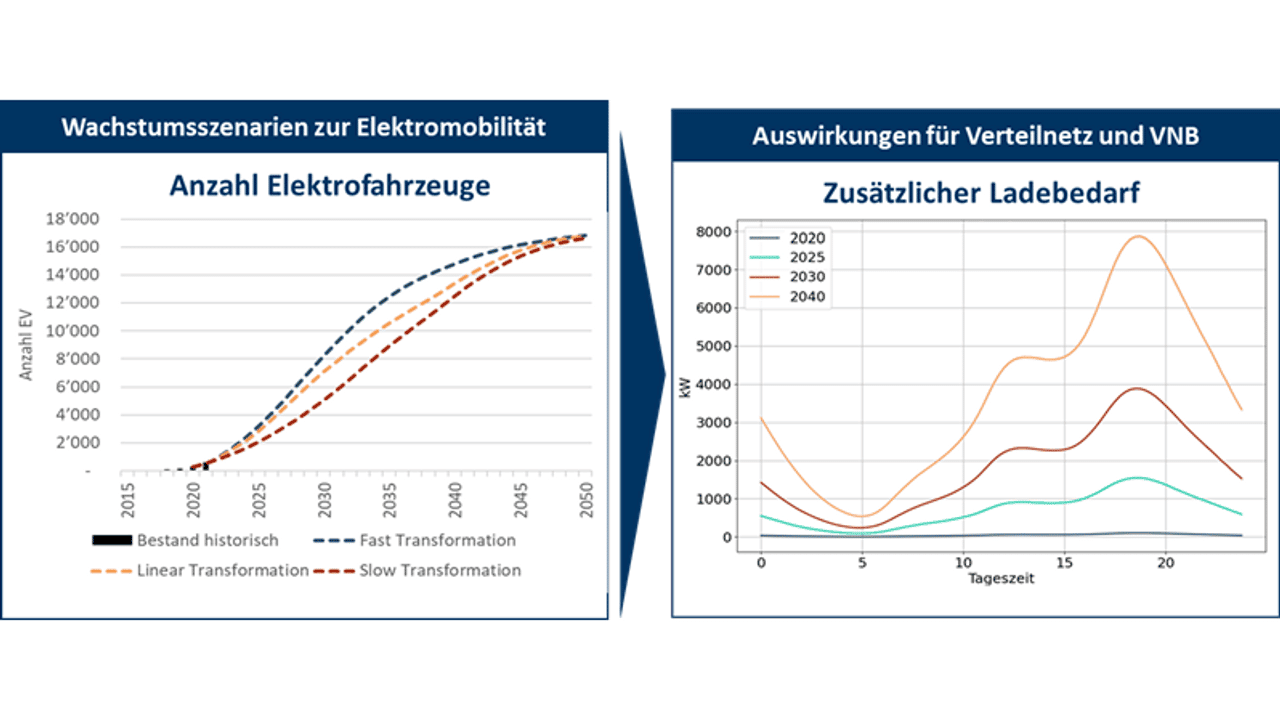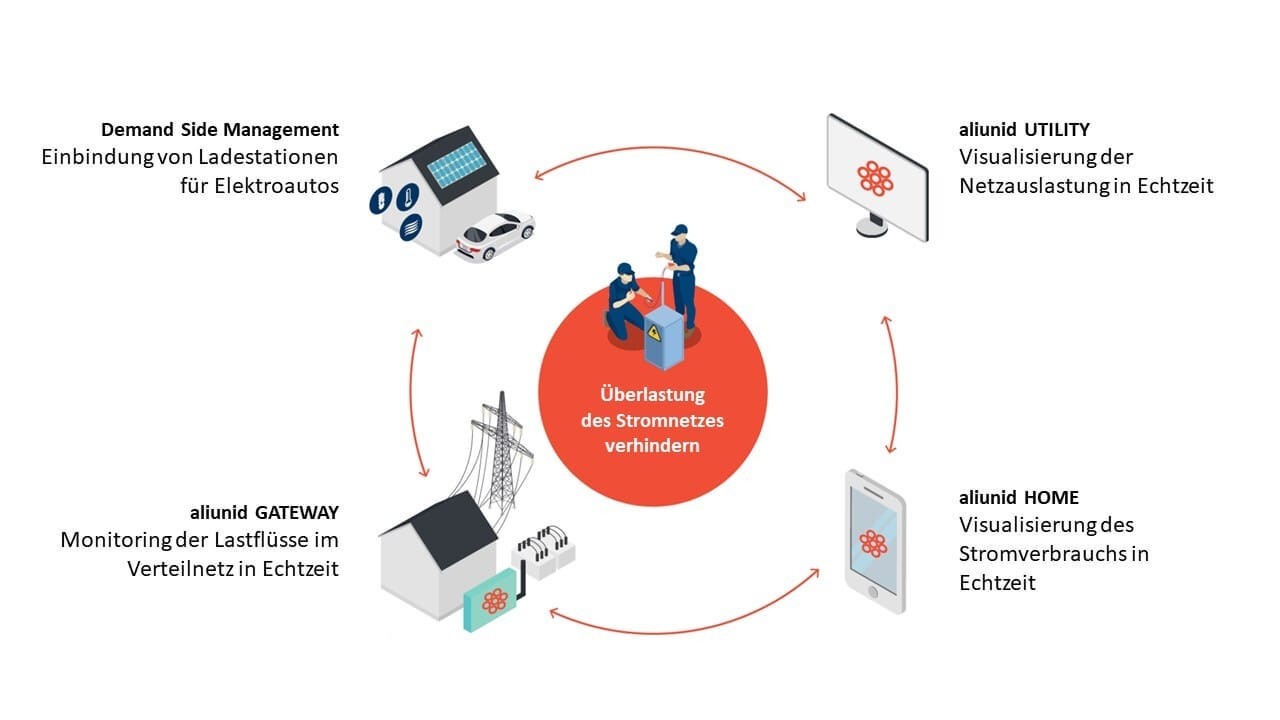The number of electric cars is increasing rapidly and with it the additional demand for electricity. aliunid provides comprehensive support to distribution network operators (DSOs) in the area of electromobility.
70 to 90% of the owners of electric cars charge their vehicle at home, which leads to peak loads in the evening. An increasing spread of electromobility without appropriate measures leads to an overload of many distribution grids. This poses new challenges for grid operators.
aliunid offers distribution network operators (DSOs) comprehensive solutions in the field of electromobility. Specific future scenarios, simulations of grid level 7 or monitoring of the distribution grid and charging stations help to classify the challenges and identify the right measures to ensure that the grids are fit for the future.
In view of the impending congestion, grid operators are faced with a choice: either they have to implement expensive and resource-intensive expansion measures or reject connection applications for new e-charging stations. Already today, connection requests have to be rejected in some cases, which slows down the spread of e-mobility.
aliunid proposes an intelligent control and use of the existing infrastructure. The principle of "intelligence before copper" should be followed. E-mobility should be intelligently integrated into the power grid.
Many grid operators are interested in solutions that enable targeted charging management at the distribution grid level. aliunid's load management solution makes it possible to prevent overloading of the distribution grid without unnecessarily restricting the owners of electric cars. A superordinate control mechanism collectively optimizes the charging behavior of all electric cars within a transformer circuit to prevent local grid overloads.

